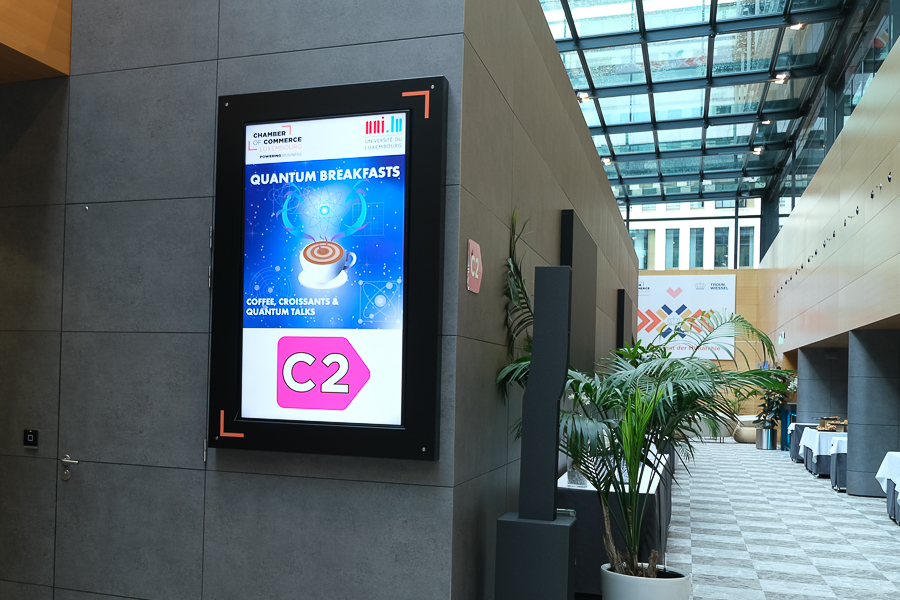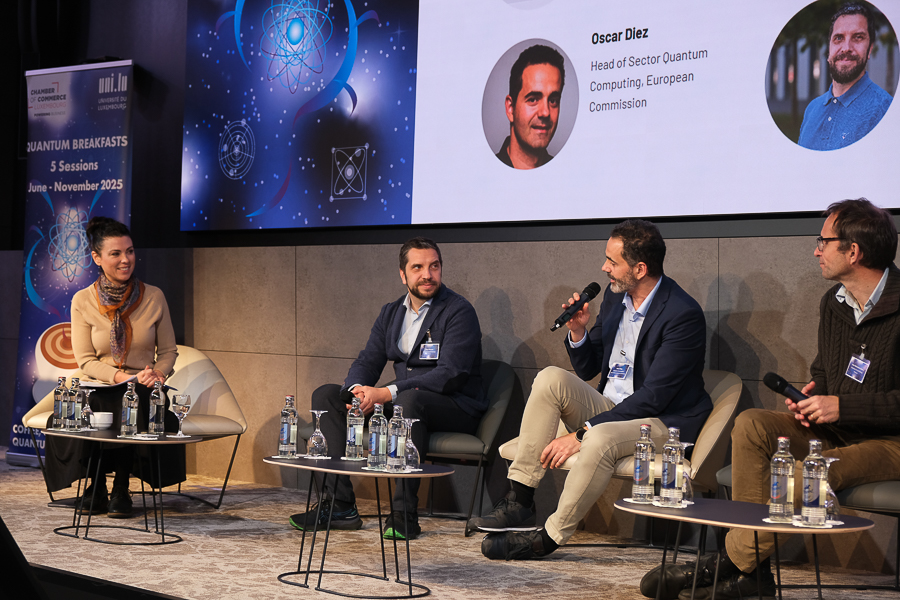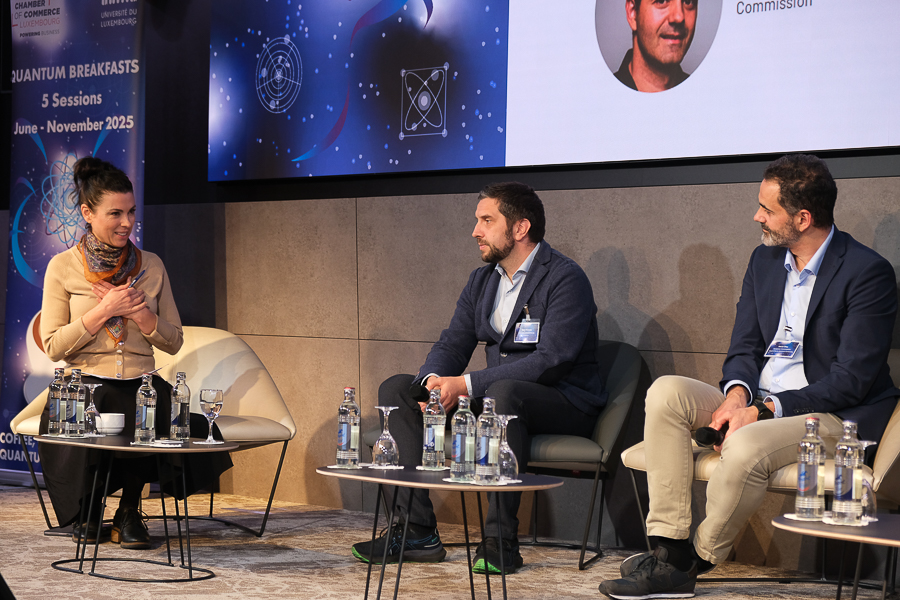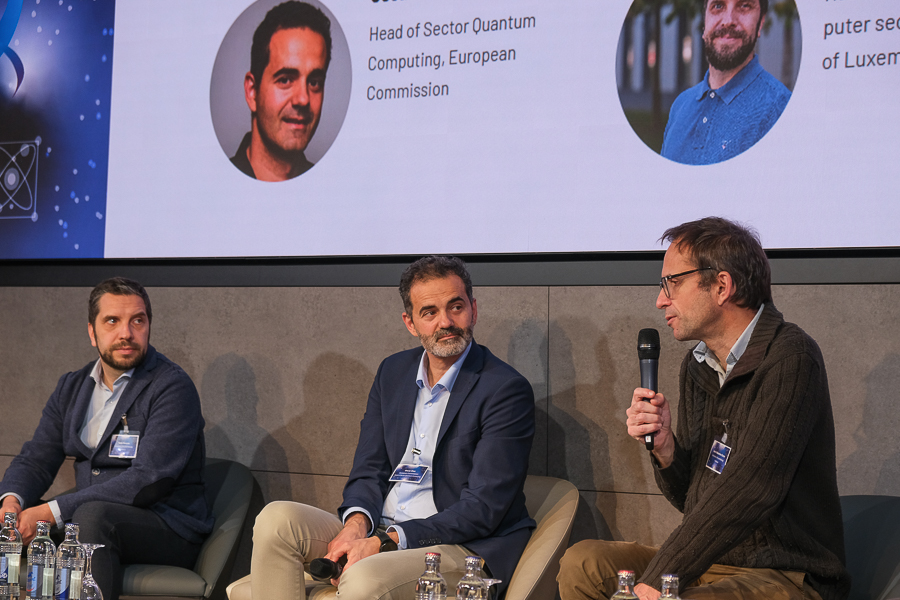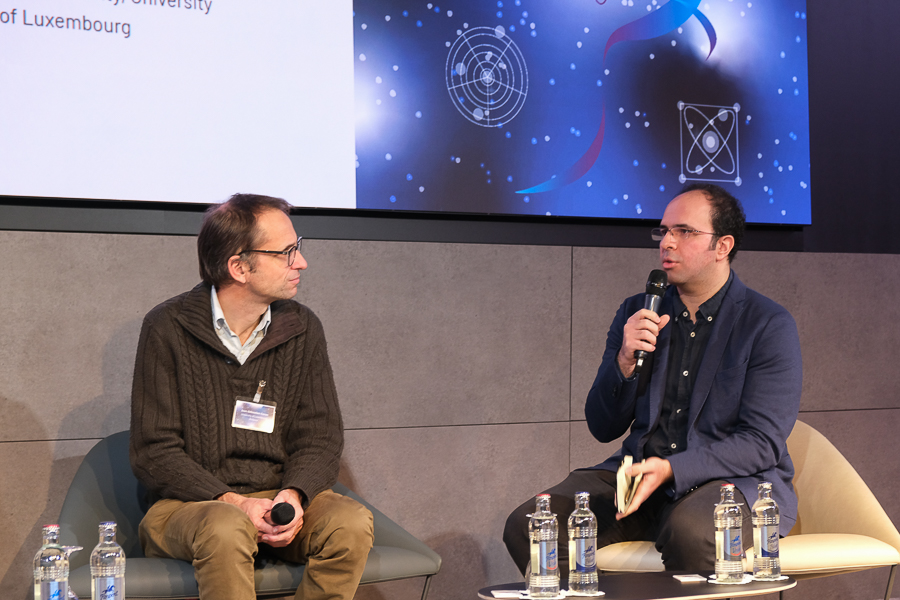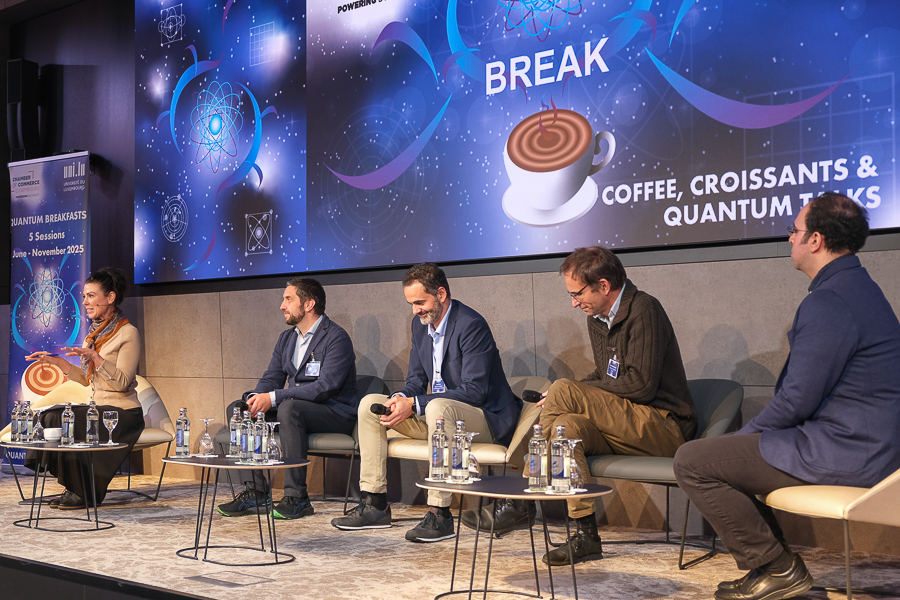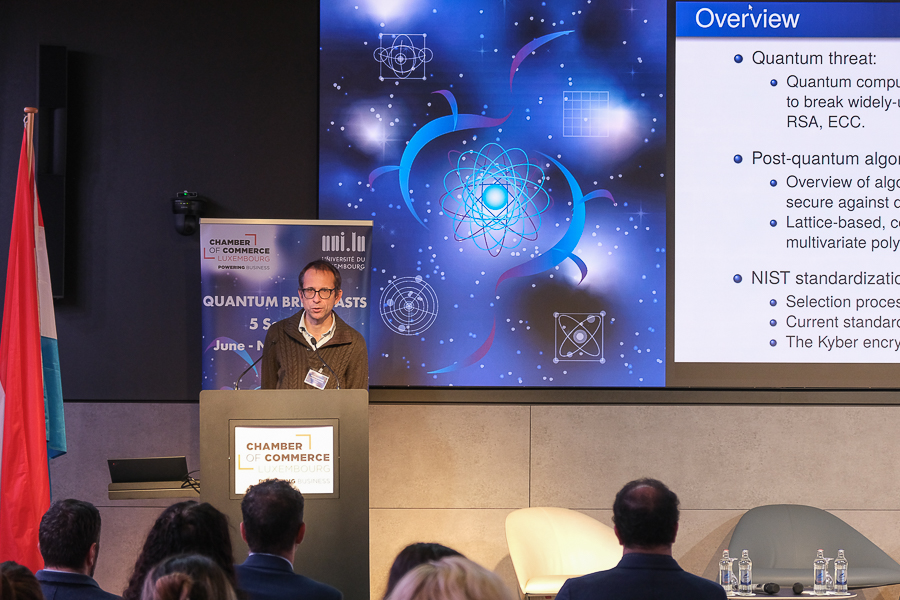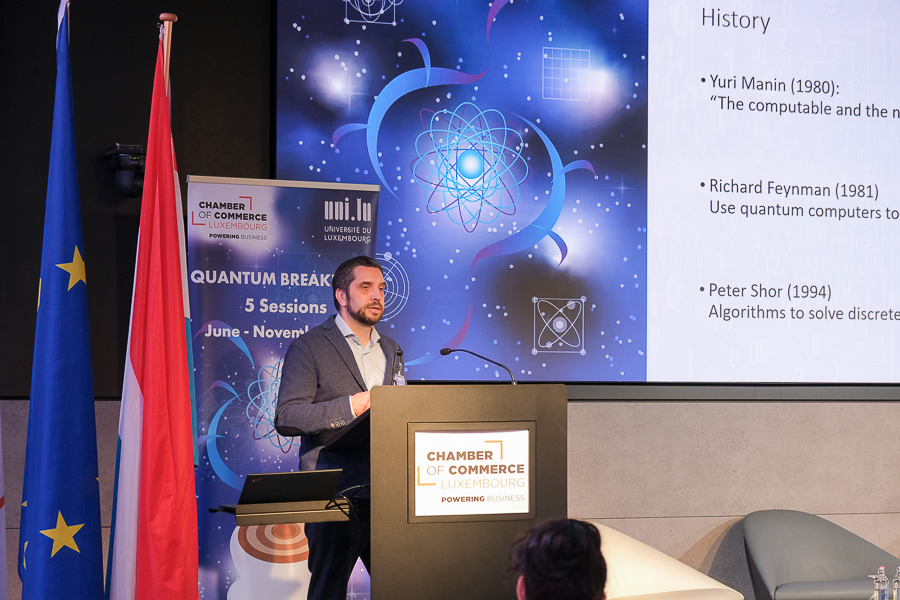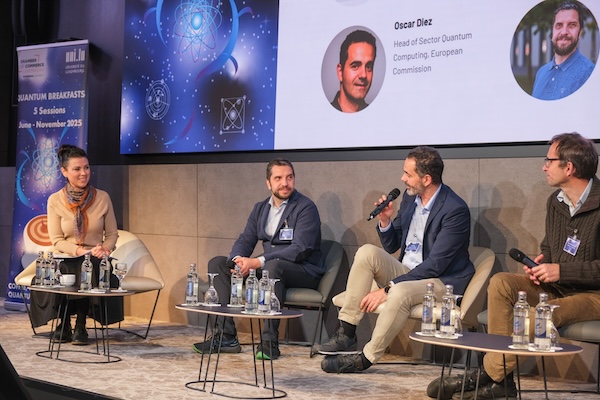 (L-R) Lisa Burke, presenter; Peter Roenne, Research Scientist in Computer Security at the University of Luxembourg; Oscar Diez, Head of Sector Quantum Computing at the European Commission;
Credit: Steven Miller, Chronicle.lu
(L-R) Lisa Burke, presenter; Peter Roenne, Research Scientist in Computer Security at the University of Luxembourg; Oscar Diez, Head of Sector Quantum Computing at the European Commission;
Credit: Steven Miller, Chronicle.lu
On Thursday 23 October 2025, the University of Luxembourg hosted its fourth Quantum Breakfast event at the Luxembourg Chamber of Commerce in Luxembourg-Kirchberg.
Guest speakers included Peter Roenne, Research Scientist in Computer Security, University of Luxembourg, Jean-Sébastien Coron, Professor in Applied Cryptography, University of Luxembourg and Arash Atashpendar, Chief Technology Officer, iTrust Abstractions Lab.
The event began with a welcoming speech from Oscar Diez, Head of Sector Quantum Computing at the European Commission, who began with an overview of the development of the quantum cryptography ecosystem, including EU policy framework, and detailed the threats posed to existing cryptography by quantum computing and the ever-increasing speed of its development. He said: “From the commission point of view, our view is that things are moving and are moving very fast.”
Peter Roenne, Research Scientist in Computer Security at the University of Luxembourg, then gave an overview of the history of quantum computing, the algorithms utilised for cryptography across the decades and the threats which currently, and in the future, will exist in relation to quantum cryptography. He stressed the need for urgency in developing, standardising and transitioning to the use of quantum cryptography, as well as the challenges with the security of legacy systems, defining what is a “quantum attack” and how it can be prevented and countered. He noted: “We need to do a lot […] to actually migrate into post-quantum […] there is a lot of effort going into this, making everything post-quantum secure.” He added: “It is not yet defined what can a quantum attacker do on many of these systems. So, we need to define that and prove the security first. So, there are many research challenges that are on us.”
The final speaker, Jean-Sébastien Coron, Professor in Applied Cryptography at the University of Luxembourg, talked of the need for cryptography in the modern world, how its requirements have shifted in relation to “the quantum threat”, the use of hybrid cryptography and the dangers of side-channel attacks, which use other means - such as the data which can be derived from the timing and power analysis of processors - to break cryptography. He then provided information on the standardisation process being developed and utilised for the implementation of quantum-based cryptography.
After a short break, the event continued with a round table discussion, moderated by presenter Lisa Burke, which included contributions from Arash Atashpendar, Jean-Sébastien Coron, Oscar Diez and Peter Roenne. The discussion touched on the element of trust in standardisation, the impact of new cryptography on a global vs European scale, the influence of politics and security policies in developing standardisation and the impact of regulation on industry implementation.
The event concluded with a question and answer session involving members of the audience.

